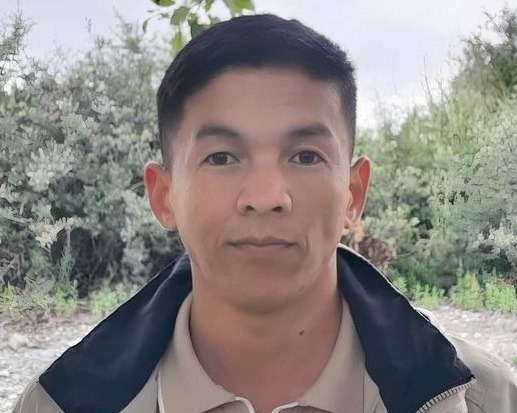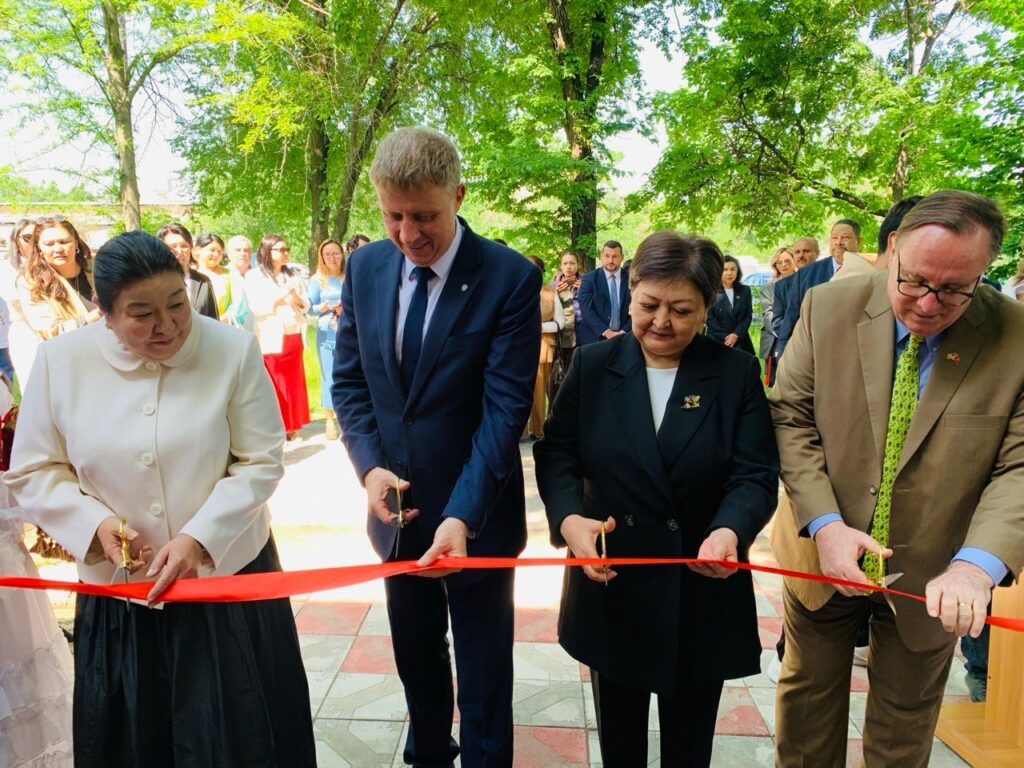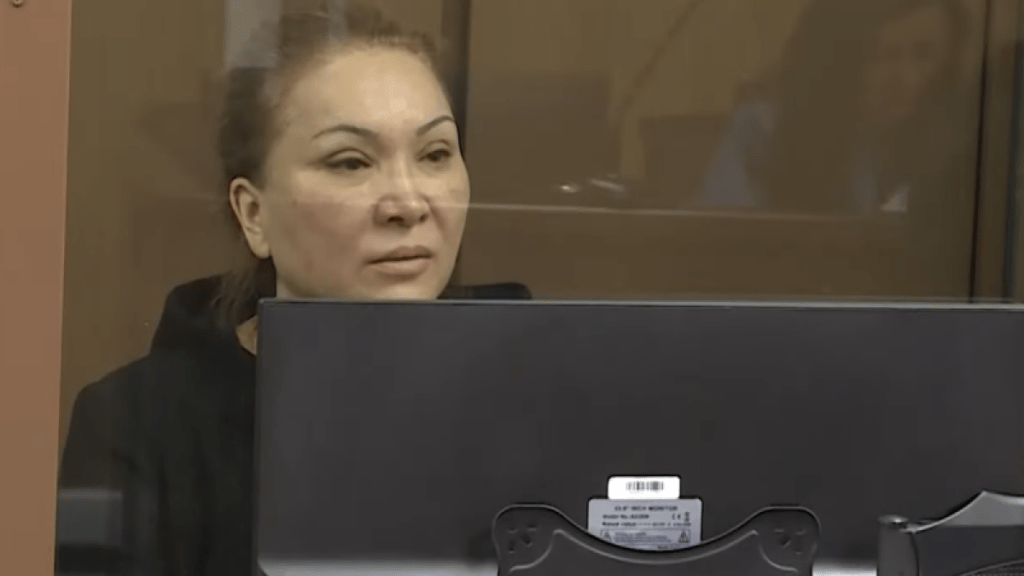Viewing results 1 - 6 of 9
The boyfriend of the niece of Kyrgyz President Sadyr Japarov has been arrested on suspicion of manufacturing illegal drugs, two weeks after a controversy over his use of a rented government helicopter to propose marriage. “We confirm that the boyfriend of the daughter of President Sadyr Japarov's younger brother was detained by law enforcement agencies,” presidential spokesman Askat Alagozov said on Facebook on Wednesday. He said there is “every reason to believe” that the man, Aftandil Sabyrbekov, wanted to hide “his illegal activities” by developing relationships with people who could protect him from the law. Alagozov stressed that the president won’t hide illegal conduct. The spokesman did not specify the alleged crimes of the fiancé of Lazat Nurkozhoeva “and his accomplices,” but several media organizations in Kyrgyzstan reported that a district court in Bishkek ordered Sabyrbekov to be placed in pretrial detention until Aug. 3. Sabyrbekov is suspected of the "Illegal production of narcotic drugs, psychotropic substances and their alternatives for the purpose of sale in large quantities,” the Kloop outlet reported. It said he could face between 12 and 15 years in prison if convicted. Last month, Sabyrbekov asked Nurkozhoeva, a former beauty queen, to marry him after the pair traveled by helicopter to the mountains near Bishkek. The helicopter belonged to the Ministry of Emergency Situations, a revelation that prompted scorn on social networks and drew an apology from Japarov, who has campaigned against corruption. The ministry said the aircraft was “legally leased” and Japarov said the government sometimes rents its helicopters for the benefit of the state’s coffers. But the ostentatious use of the government asset, flaunted in a slick video showing Japarov’s niece in the helicopter, was over the top for some critics. It wasn’t true love after all, the presidential spokesman, Alagozov, appeared to suggest. At the end of his Facebook message, he referred to Sabyrbekov as the “ex-boyfriend,” indicating that the romance with the president’s niece was over.
Human rights activist Gulshayyr Abdirasulova has reported on social media that Zhomart Karabayev, a former employee of the Academy of Sciences in Kyrgyzstan, has been detained by officers of the SCNC (State Committee for National Security). According to Abdirasulova, Karabayev had openly expressed his disagreement with the activities of special services and refused to participate in expert examinations in multiple cases. "Zhomart Karabayev, a former employee of the NAS (National Academy of Sciences), has repeatedly stated that the NAS provides its' expertise on [criminal cases] under the dictation of special services. He also stated this at the trial of Olzhobai Shakir (who was sentenced to five years in prison in May this year in a case pertaining to the preparation for mass riots - ed.). Now, he has been taken away by GKNB officers. Is this what they want? To investigate themselves? Or should the young man be jailed for his statement about breaking the law? We are waiting for the official position of the SCNS," Abdirasulova wrote. "The lawyer said that Zhomart is suspected of committing an act under Article 278 part 3 of the Criminal Code - calls for mass riots. The lawyer believes there are no grounds for suspicion of committing this crime and hopes the case will be dropped. Zhomart remains in the [custody of the] SCNS until the measure of restraint is considered". According to local media, Karabayev was summoned to the SCNS for questioning yesterday, and was not released following interrogation.
According to reports published by Turkmen.news, the government of Turkmenistan and the International Labor Organization (ILO) have adopted a roadmap for cooperation for 2024-2025, The document details specific steps to prevent the use of forced labor by adults and children during the cotton harvest. It also provides mechanisms for hired labourers to lodge complaints regarding coercion or extortion, and sets a minimum wage for pickers. If all of the conditions and measures outlined in the roadmap are implemented, significant progress will be made towards eradicating forced labor in Turkmenistan. The key aim is the legislation of a presidential decree on measures for organized cotton harvesting to eliminate the use of forced or compulsory labor. It is expected that a system of prohibitions and penalties will be introduced regarding the practice of forced mobilization or extortion. The roadmap stresses the need for a simple and easily accessible means whereby complaints of coercion can be anonymously filed to prevent officials retaliating against the complainant. The Ministry of Foreign Affairs, the Supreme Court, the Prosecutor General's Office, the Interior Ministry, the Ministry of Justice, the Ombudsman Institute, and the Ministry of Labor and Social Security are tasked with developing the document's recommendations. “Overall, if the measures in the roadmap are implemented, it will be a big step forward. Although the government has not publicly recognized the problem, such a detailed plan is encouraging,” said Ruslan Myatiev, editor of Turkmen.news.
The first-ever One-Stop Service Center for Victims of Violence opened in Kyrgyzstan on May 28. Created through collaboration between the U.S. and Kyrgyz governments and the United Nations Office on Drugs and Crime (UNODC), the new center will provide critical support for survivors by integrating medical care, counselling, legal aid, and police investigation services under one roof, according to the U.S. Embassy in Kyrgyzstan. As victims of violence often have difficulties accessing essential services and sometimes face negative societal attitudes, the One-Stop Service Center aims to empower survivors, improve access to justice, and create a safer environment. During the opening ceremony, U.S. Ambassador to the Kyrgyz Republic Lesslie Viguerie said: “A thriving democratic and civil society is like a vibrant tapestry, woven together by the threads of strong relationships and communities. Gender-based violence, however, threatens to unravel this tapestry, weakening the bonds that hold our society together.”
The Anti-Corruption Service of Kazakhstan has completed its investigation into the criminal case against Gulmira Satybaldy - the ex-wife of Kairat Satybaldy - nephew of former President of Kazakhstan, Nursultan Nazarbayev. Ms. Satybaldy is accused of illegal imprisonment, extortion on a large scale, and arbitrariness which led to grave consequences. The criminal case was transferred to a specialized court in Almaty. According to law enforcement agencies, other information is not subject to disclosure at this juncture. Gulmira Satybaldy was originally detained by the anti-corruption service on March 16, 2022, accused of abductions and aiding the commission of a crime. A year ago this month, she was sentenced to seven years, but has since been incriminated in further crimes. Gulmira Satybaldy's ex-husband, Kairat, was convicted of abuse of power and embezzlement of funds from the state company, Kazakhtelecom. According to official data, since 2022 he has repatriated more than 700 billion tenge ($1.58 billion) worth of illegal assets to the state.
The Czech Republic has suspended an investigation of ammunition depot explosions in 2014 that it blames on Russian military intelligence, including an agent who allegedly used a Tajik passport during the operation. Two Czech citizens died in the first of two explosions at warehouses in the village of Vrbětice, an alleged act of sabotage that led to years of unexploded ordnance cleanup, an international investigation and Russian denials of involvement, and a tit-for-tat expulsion of Russian and Czech diplomats from each other’s countries. Tajikistan was pulled into the case in 2021 when Czech investigators said they were looking for two suspects who used Russian passports, and then used different identities under Tajik and Moldovan passports. At the time, Tajikistan’s Ministry of Internal Affairs said it had not issued a passport to a person matching the reported name and birthday of the suspect. Reports said the suspects had posed as potential arms buyers from the National Guard of Tajikistan, though an analysis by a group of media organizations said it was unclear whether that particular ruse enabled them to get onto the ammunition storage sites. Czech law enforcement halted the probe into the Vrbětice blasts because the suspects are in Russia, which is not cooperating, said Col. Jiří Mazánek, head of the organized crime division of the police. He said in a statement on Monday that all other avenues of investigation in the Czech Republic, and in countries that have cooperated with requests for help, “have been exhausted.” Therefore, Mazánek said, additional information that would allow a criminal prosecution to move forward can’t be obtained for now. Evidence indicates that the explosions were “part of a long-term diversionary operation by Russian military intelligence on the territory of the European Union and Ukraine,” the police official said, blaming members of the Russian agency GRU whose alleged aim was to prevent the delivery of weapons and ammunition to areas where the Russian Army was operating. In 2014, Russia annexed Crimea and fighting erupted in eastern Ukraine between Ukrainian forces and Russia-backed separatists, in a prelude to Russia’s invasion in 2022 and the ongoing war today. Russia denied it was responsible for the Vrbětice explosions and noted media reports that the ammunition depots were controlled not by the Czech government, but by a private company owned by a Bulgarian citizen.






